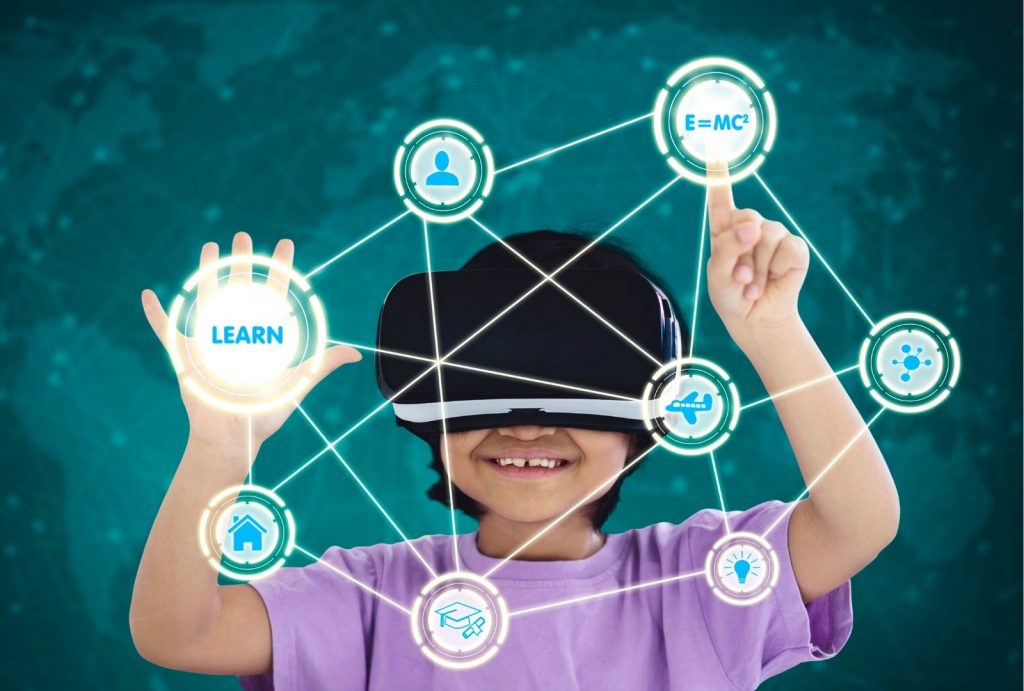The metaverse is upon us. – Education meets the Metaverse
As technology advances to bring us new immersive and imaginary worlds, how we educate children and prepare teachers must also advance to meet these new opportunities. When education lags the digital leaps, the technology rather than educators defines what counts as educational opportunity. This is largely what happened with the introduction of “educational” apps designed to be used on smartphones and tablets meant for adults. Today, as the metaverse infrastructure is still under construction, researchers, educators, policymakers, and digital designers have a chance to lead the way rather than get caught in the undertow. To leverage the potential of the metaverse as a 3D, global, interconnected, immersive, and real-time online space, we need new ways to connect the physical world with augmented and virtual reality (VR) experiences.
In this policy brief, we offer a path for bringing best educational practices into the metaverse. We suggest a series of well-worn principles derived from the science of how and what children learn to guide the design of new educational technology. We also suggest ways in which design in this new space can go astray. In the end, we challenge those creating educational products for the metaverse to partner with educators and scientists to ensure that children experience real human social interaction as they navigate virtual spaces, children’s agency is supported as they explore these spaces, and there is a real eye to diversity in the representation and access to what is created.
A VISION
Education meets the metaverse – Imagine a circular classroom, surrounded by white boards and populated with movable chairs. Energized students are mesmerized by the tales of the Greek myths, the power of Zeus the god of the sky, and stories of the great Hercules—his son—whose strength was legendary.
Suddenly, a timeline is projected onto the middle of the floor. Children whisk away their chairs to stand in the present, ready to move backward and descend into the year 300 BC—a year in which they will encounter a new reality. They enter the metaverse of Greek culture. Carts buzz by them, traders in marketplaces surround them and high atop the hill, they see—with their own eyes—the temples of the gods and the people who worship them. They explore, they ask questions, they ponder, they learn!

